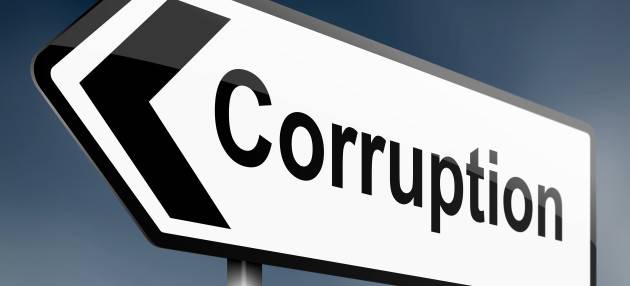The World Economy Forum summit that took place in Davos this year brought a lot of positivity for Pakistan and the incumbent government against the wishes of the many. The most significant feature of the event was full-fledged representation of Pakistan in this global Forum at a time when the newly-elected US President took the line of nationalism and the Chinese president voiced support for the globalization. And Pakistan has emerged as a main stake holder in the new world order by exclusively participating in the forum at all levels, which was also a befitting answer to Indian Prime Minister Narindra Modi who has boasted off to make Pakistan an alien in a global world.
As the economy of the country has been put on the straight path, the anti-government elements have been trying to malign every good step of the government. They criticises Nawaz Sharif for attending the event as a loss of time and money and even went on to say that Sharif was not allowed to speak at Davos for his ‘corruption’. Some even stated that he was not invited at all. Even a leading newspaper published the news that prime minister was forbidden to speak at WEF. But they forgot to apologise when Media Head of WEF Yann Zopf had put the facts straight saying: “WEF was delighted that Muhammad Nawaz Sharif, the Prime Minister of Pakistan, participated in the Annual Meeting 2017 in Davos from 17-20 January. The Prime Minister has been invited by the World Economic Forum, and his agenda was prepared in consultation with his office, keeping in mind their objectives and key priorities. This included several meetings with key leaders from business and politics.”
But the most befitting fact negating all this negative propaganda came from Berlin-based corruption watchdog Transparency International (TI), according to which Pakistan’s ranking in the Corruption Perceptions Index (CPI) 2016 has improved. The country’s score has increased by 2 points from 30 to 32 out of 100. Pakistan’s rank in the CPI 2016 has improved to 61st above most corrupt country in 176 countries from 52nd above most corrupt country in 168 countries in 2015. It is somewhat encouraging that for the first time since 1996, when the first CPI was published, Pakistan has jumped from the lowest one-third corrupt countries to the middle one-third countries in 2016.
In 2014, the TI described Pakistan’s CPI score of 29 out of 100 and ranking of 126 among 175 countries. Its previous score was 127 out of 175 in 2013. Pakistan saw a significant improvement in its statistics in 2013 when its ranking improved by 12 indices compared to its previous rankings 139 out of 174 in 2012, 134 out of 182 in 2011, 143 out of 178 in 2010. Pakistan’s ranking in the Corruption Perceptions Index (CPI) since 2013 is in a better position. Keeping in view the rapid improvement in CPI score, it is estimated that Pakistan’s rank will improve further since Islamabad is working more vigorously to combat the menace.
Despite a very poor country brand with the international media and somehow in national media as well, Pakistan has undergone a series of positive developments that merit recognition. The country had its first peaceful democratic transition in 2013, and for now, the military, the civilian government, and civil society are broadly aligned on security issues. Pakistan’s economy has been growing for a number of years.
According to an Asian Development Bank report, growth accelerated in Pakistan in Fiscal Year 2016 (ended 30 June 2016) on the cumulative impact of the government’s macroeconomic and structural reform program, sharply lower oil prices, and improved security, outpacing earlier growth forecast despite a major crop failure. Inflation and the current account deficit were lower than expected, while foreign exchange reserves strengthened and the budget deficit shrank. ADB raises the projection for growth in FY2017. It also edges up the forecasts for inflation and the current account deficit mainly on the expectation of higher global oil prices.
Pakistan’s competitiveness has also risen by four places to 122nd according to the latest Global Competitiveness Report (2016-17) of the World Economic Forum. The increase underlines that certain macroeconomic indicators of the country have improved in the last one year. Of the 114 global competitiveness indicators, Pakistan showed improvements on 54 key indices.
The report showed that Pakistan improved from 119 to 111 on the institutions pillars, while infrastructure improved only one point to 116 this year. On the macroeconomic stability pillar, the country jumped from 128 in 2015 to 116. It also made economic progress on national savings as a percentage of gross domestic product as the rank improved from 115 to 107. The government debt percentage to GDP also ranks at 95 among 138 economies in the world. The biggest gain, however, is in the area of inflation as Pakistan moved from 127 in 2015 to 93 regarding the annual percentage change in inflation.
Improvement of Pakistan’s ranking by a global institution matters as it comes at a time when there was intense public debate going on about corruption and the need to stem the menace. There are reasons to believe that the situation would improve further in years to come if the national focus remains on the issue and the public opinion forces the policy and decision-makers to take concrete and genuine steps to tackle the problem of corruption. The fact remains that there has been almost no mega corruption scandal in Pakistan ever since the present Government came into power.
To seize its full potential, Pakistan is going to need more capable people to lead industries that will carry its future growth; run it’s national, provincial and city governments; and grow its universities. The Pakistani government knows you can’t have a twenty-first-century economy with eighteenth-century practices in different sectors and that’s why it is striving to bring change in the institutions and the results have been there that are speaking by themselves.






